Politics
Legal Opposition Seeking to Stop Tinubu’s May 29 Swearing In
Published
11 months agoon
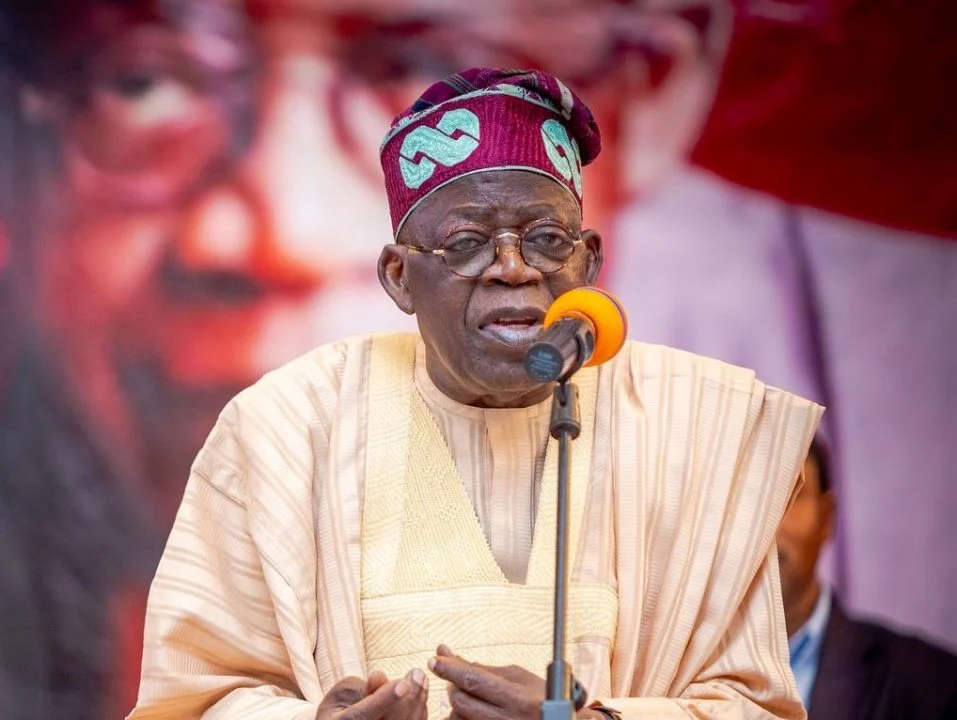
Legal opposition Seeking to stop Tinubu’s May 29 swearing in
NewsReport Nigeria gathered that as many Nigerians eagerly await the May 29, 2023, swearing in of a new President and Vice President, opposition to the victory of Asiwaju Bola Tinubu at the February 25, 2023, presidential election suffered a setback as indigenous people of Abuja and the Federal Capital Territory (FCT) denounced a suit seeking to stop the swearing in ceremony from holding. Assistant Editor ‘Dare Odufowokan reports.
Ahead of the May 29, 2023 date for the swearing in of Asiwaju Bola Ahmed Tinubu of the ruling All Progressives Congress (APC) as President of the Federal Republic of Nigeria, oppositions to his election suffered a huge setback as indigenous people of Abuja and the Federal Capital Territory (FCT) denounced a suit seeking to stop the swearing in ceremony from holding.
Declaring their support for the President-elect and dismissing the people behind the controversial suit as ‘meddlesome interlopers,” Abuja natives under the auspices of the Abuja Peoples Forum (APF) said it is their desire that the FCT be treated like any other state in the federation. This, they claim, will further enhance their fundamental human rights to stand for election into various elective positions and enjoy the right to vote for their preferred political officeholders too.
Recall that five people who claimed to be acting on behalf of residents of the FCT, Abuja, have asked the Federal High Court to stop the May 29 inauguration of the President elect. The move generated controversy as many residents and registered voters in Abuja distanced themselves from the actions of the five people. Many also faulted their decision to act on behalf of the good people of Abuja, as no meeting or congress was called to agree to such a move.
In the suit marked FHC/ABJ/CS/578/2023 and filed by their counsel, Chucks Nwachukwu, the plaintiffs have applied for an order restraining “the Chief Justice of Nigeria, Justice Olukayode Ariwoola, any other judicial officer, and/or any other authority or person from swearing in any candidate in the February 25 presidential election as President or Vice-President of the Federal Republic of Nigeria, until it is judicially determined with finality or in accordance with the provisions of the Constitution that such candidate has fulfilled the requirement of Section 134(2) (b) of the Constitution”.
Joined as defendants in the suit are the Attorney-General of the Federation and the CJN, who were cited as the 1st and 2nd defendants, respectively. The action was filed by Anyaegbunam Ubaka Okoye, David Aondover Adzer, Jeffrey Oheobeh Uche, Usang Paul, and Chibuike Nwachukwu, who told the court that they are suing for themselves as well as representing other residents and registered voters of the FCT, Abuja.
According to the five complainants, who insisted that their demands before the court represent the desires of residents of the Federal Capital Territory, Abuja, some questions need to be answered before the swearing-n day. In the originating summons dated April 28, the plaintiffs further want a declaration that,”the plaintiffs and other FCT residents have a legal interest and constitutional rights to be heard on the question of whether a President-elect must secure at least 25% of votes cast,on the first ballot, in the FCT, Abuja.”
The plaintiffs want the court to determine the question as to whether the plaintiffs and other residents and registered voters of the FCT have a legal interest inand therefore a constitutional right to be heard on the question of whether or not a person who is to be elected president of the Federal Republic of Nigeria, and consequently an administrator of the territory, through the Minister of the FCT and the Federal Capital Development Authority, on the first ballot is required by Section 134 (2) (b) of the 1999 constitution to obtain at least 25 percent of the vote cast in the FCT.
They will also like to know whether the plaintiffs and other residents and registered voters in the FCT, Abuja, would not be discriminated against if any state within the Federal Republic of Nigeria were substituted for the FCT, Abuja, for the purpose of the application of Section 134 (2) (b) of the 1999 Constitution in any guise.
And whether any candidate in the February 25, 2023, presidential election in the countrymay validly be declared elected and sworn in as President of the Federal Republic of Nigeria and therefore have the authority to administer or oversee the administration of the FCT through the Minister and the Federal Capital Development Authority without that candidate obtaining at least 25 percent of the votes cast in the FCT, Abuja.
The suit equally seeks to answer the question as to whether the court may restrain the swearing in of any person on May 29 or at any other date until the issues raised in the originating summons have been determined with finality.
The originators of the controversial suit are consequently seeking the following reliefs: “a declaration that no state of the country is at the same time the FCT for any proposal whatsoever, including, in particular, under Section 134 (2) (b) of the Constitution.
They also wish that the court will declare that no candidate in the February 25 presidential election in the country may be validly declared elected President of the Federal Republic of Nigeria without that candidate obtaining at least 25% of the votes cast in the FCT, Abuja.
“A declaration that no candidate in the February 25 presidential election may validly be sworn in as President and Commander-in-Chief of the Armed Forces of the Federal Republic of Nigeria without such candidate having obtained 25% of the votes cast in the FCT, Abuja.
“A declaration that following the February 25 presidential election and until a successor is determined in accordance with the provisions of the Constitution and sworn in, the term of office of his Excellency, Muhammadu Buhari, GCON, as President and Commander-in-Chief of the Armed Forces of the Federal Republic of Nigeria subsists and endures in accordance with the provisions of Section 135 (1) (a) of the Constitution”.
Also, “an order setting aside or suspending any declaration and/or issuance of a Certificate of Return to any candidate in the February 25 presidential election in the country as having been elected, save and except it is judicially determined with finality that such candidate fulfilled the conditions stated in Section 134(2)(b) of the Constitution”.
The suit, which is still being heard, is generating a lot of controversy as more and more residents of the FCT continue to fault those who instituted it. In the midst of the debate, the Court directed the five complainants to respond to issues of jurisdiction over their application seeking to stop the swearing in of the President-elect, Tinubu, as President on May 29, 2023.
Last Monday, Justice Inyang Ekwo said the residents and voters in the FCT should address the court on their locus standi, jurisdiction, and whether there is a similar matter before the presidential elections court. Observers of the trial claim that the court is not oblivious to the issues being raised about the eligibility of the complainants to seek such relief on behalf of residents of the FCT.
But more indications have emerged to support the school of thought that says Anyaegbunam Ubaka Okoye, David Aondover Adzer, Jeffrey Oheobeh Uche, Usang Paul, and Chibuike Nwachukwu, who told the court that they are suing for themselves as well as representing other residents and registered voters of the FCT, Abuja, may not have the mandate of the people of the FCT to institute the case in question.
Secretary General of the Abuja Peoples Forum (APF), Mallam Shitu Mohammed Kabir, while reacting to the suit, wondered who could speak on behalf of Abuja more than the indigenous people of the area. He added that the original natives of the FCT are not parties to the suit, insisting that those who went to court do not have the mandate of Abuja indigenes to move against the May 29, 2023, swearing in of Asiwaju Tinubu as the President of the country.
Mohammed Kabir, who appealed to Nigerians not satisfied with the outcome of the 2023 presidential election to wait for the eventual pronouncements of the courts, insisted that nothing must be done to stop the swearing in of the President-elect, Asiwaju Bola Ahmed Tinubu, from holding on May 29, 2023. According to him, “as patriots and committed Democrats, we, the natives of Abuja, are not against the swearing in of President-elect Asiwaju Tinubu.
The double national honors recipient, while addressing the media in Abuja during the week, urged Nigerians to rally around Tinubu to begin the healing process in the land, stressing that the country was deeply divided along ethnic, religious, and political lines. “Nigeria needs a man who will unite the country and start the process of healing the wounds. We, as natives of Abuja, will not be party to any opposition against Tinubu because we want the process to start immediately,” the APF scribe said.
He added that though it is in order that Tinubu’s opponents, Peter Obi of the Labour Party (LP) and Alhaji Atiku Abubakar of the People’s Democratic Party (PDP), amongst others, have filed different petitions at the election tribunal over the outcome of the February 25 presidential polls won by Tinubu, the process of transiting from one government to the other must not be tampered with while the nation waits for the outcome of the litigations.
Shitu said he believed in the judiciary to do justice to the petitions, appealing to the political actors to be cautious of their utterances in public. The post-election comments of some political actors, he noted, are not helping the healing of this country on all sides; therefore, such comments must be minimized. “They are very inciting, and those comments are sometimes very hurtful, and they lack decency. I am not speaking as a party man, but I am a Nigerian. I want peace. I want us to move forward as a country.
“We do not seek to support one party against another. Our position is that there is a process. The election is just part of it, as are the swearing-in and the court cases. We want all these parts of the process to be allowed to go on unhindered by anybody or any group in the interest of the country. That is why we are speaking against those who went to court to stop the inauguration. We are spreading the word that the inhabitants of Abuja are with the president elect,” he submitted.
In a related development, the High Court of the Federal Capital Territory (FCT) is hearing a suit by Abuja’s original inhabitants seeking that Nigeria’s capital be granted the full status of a state like the existing 36 and with its own state governor. The President, the National Assembly, and the Attorney-General of the Federation are all defendants in the suit. Initiated by the Registered Trustees of Abuja Original Inhabitants Youth Empowerment Organization, the lawsuit is an attempt by the original inhabitants of Abuja to get the court to define their positions as Nigerians who hail from Abuja.
In their presentations before the court, the indigenes of FCT are lamenting that they are the only group of people in Nigeria who are deprived of political rights to participate in elections, to vote, and to stand for elections in the country. According to the argument of the counsel to the group, James Ndeye, who described the suit as a case of fundamental rights, the Abuja natives are telling the court that the quest for the enforcement of the rights being sought translates to greater inclusion in the governance structure.
He explained that the National Assembly has a crucial role to play in ensuring the required legislative interventions to make the dreams of the original Abuja inhabitants a reality. Among other prayers, the Abuja natives asked the Court to order the National Assembly to apply a ‘Doctrine of Necessity’ and pass a Resolution allowing elections to be conducted into designated executive and legislative positions as obtainable in states before the inauguration of a new government on May 29, 2023. They are also seeking that the court award the sum of N15 trillion against the defendants as damages.
You may like
-
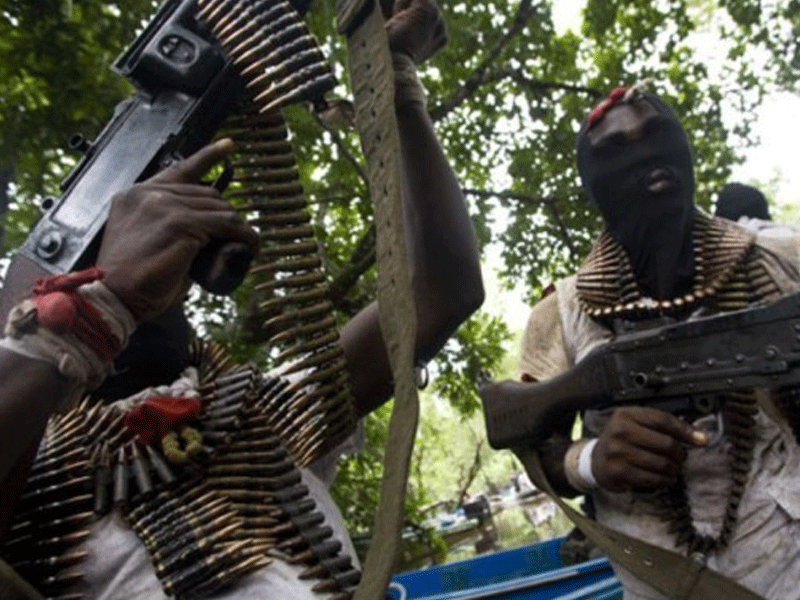

Kidnappers Demand N30m Ransom for Release of Two Sisters in Abuja
-
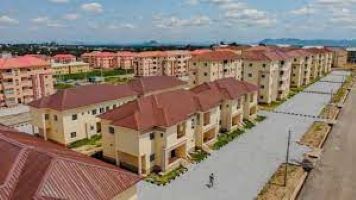

FEDERAL MORTGAGE HOMES COMMISSIONED AFFORDABLE HOMES.
-
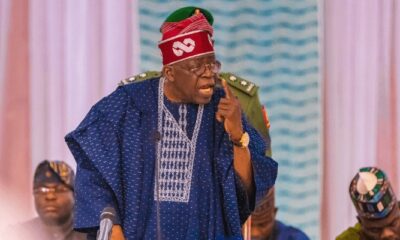

Payroll fraud: “I can’t believe the Figures I’m seeing” Tinubu
-
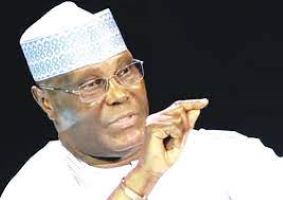

Dismissal of the Case File Against Tinubu and Shettima is not a Setback for Justice- Atiku
-
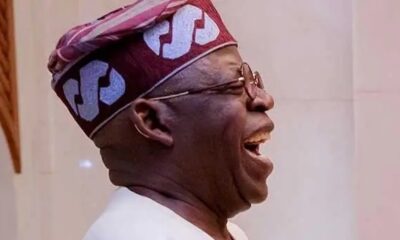

An ex-presidential candidate was fined N40M by the court for attempting to thwart Tinubu’s inauguration.
-


We’ve Found New plots to Interrupt Tinubu’s Inauguration.- DSS



